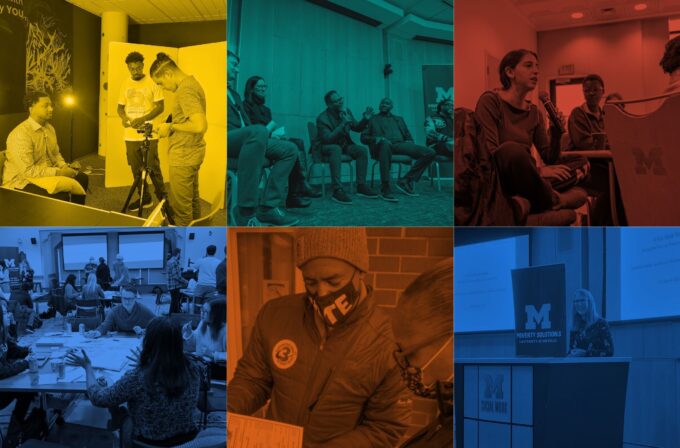Poverty Solutions shares innovations, lessons learned in 2024

By Lauren Slagter
Poverty Solutions at the University of Michigan made significant strides in its action-based research to prevent and alleviate poverty in 2024, thanks to the interdisciplinary work of faculty, staff and students across the university.
Poverty Solutions released its annual impact report Jan. 31, underscoring takeaways from its efforts over the past year

Kristin Seefeldt
“We’re proud of the impactful work we’ve contributed to in Detroit and throughout Michigan,” said Kristin Seefeldt, acting faculty director of Poverty Solutions and an associate professor of social work in the School of Social Work, and associate professor of public policy in the Gerald R. Ford School of Public Policy.
“The innovations we’ve tested and the lessons we’ve learned have profound implications for broader anti-poverty initiatives across the United States. We’re excited to share what we’ve learned in this impact report,”
The report included information on the following key research areas:
- Innovations in cash transfers, via Rx Kids, the nation’s first citywide maternal and infant cash prescription program; and Guaranteed Income to Grow Ann Arbor, which takes a novel approach to providing guaranteed income to self-employed workers with low incomes.
- Promoting economic opportunity through community violence interventions and summer youth employment.
- Addressing the costs of housing instability with an assessment of Michigan’s housing inventory, examining the long-term costs of eviction filings, and making data on child and youth homelessness more accessible.
- Laying the foundation for reparations by quantifying historical harms to Detroit’s Black residents.
- Supporting participatory democracy by empowering voters to engage with candidates on poverty issues and amplifying public opinion polling on Detroiters’ priorities for elected officials.
Poverty Solutions is a universitywide presidential initiative that also supported faculty and students in 2024 and elevated the university’s profile as a leading poverty research institution, via the following milestones:
- Sustaining 22 active research projects.
- Contributing to 11 publications, including academic journal articles, action-oriented policy briefs, and working papers.
- Awarding $80,000 in seed grants to U-M faculty.
- Employing 56 student research assistants.
“At Poverty Solutions, we see strong alignment between our work and the priority impact areas for U-M’s Vision 2034 campaign,” Seefeldt said. “We look forward to continuing to serve the common good through our action-based research agenda, set in partnership with policymakers and community organizations working on the front lines of poverty alleviation.”
